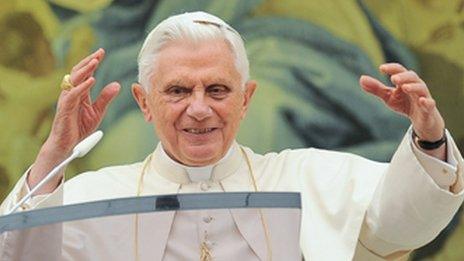Vatican profile - Leaders
- Published
Head of state: Pope Francis
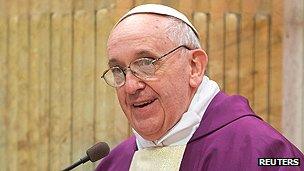
Pope Francis has initiated a change of tone in the Catholic Church's message
Cardinals elected the first Latin American pope in March 2013, choosing Cardinal Archbishop Jorge Mario Bergoglio of Buenos Aires to succeed Pope Benedict XVI, who had resigned over ill-health after a reign of eight years
At 76 he was only two years younger than Benedict at the time of his election, confounding expectations that the cardinals would opt for a younger candidate to lead the Catholic Church through the many challenges it faces.
Moreover, he has only one lung, which raised doubts about his stamina in this demanding post.
He had broad appeal in the College of Cardinals, being conservative on homosexuality but liberal on such social issues as poverty and inequality.
He is also the first pope from the Jesuit order of priests, who normally eschew promotion through the hierarchy to concentrate on scholarly and missionary work.
As head of the Jesuits in his native Argentina in the 1970s, he had to deal with the right-wing military junta that ruled in 1976-1982. He was criticised by some for allegedly failing to do enough to help victims of repression - including two members of his own order.
His defenders insist that he did much to counter the generals behind the scenes.
As pope, he made a bold start in addressing enduring scandals over clerical sex abuse and alleged corruption in the Vatican itself. He has demanded reform of the Curia - the top layer of the Church's bureaucracy - and has set up an advisory panel of senior churchmen from every continent tasked with drawing up a new Vatican constitution.
In November 2013 his first formal exhortation proposed wider consultation within the Church and condemned the world financial system, but said nothing new on the vexed questions of abortion, sexuality or the male-only priesthood.
In March 2014, after the UN criticised the Vatican for failing to stamp out child abuse and for allowing cover-ups, Pope Francis insisted that no other public institution had acted with greater transparency in this area.
But in his pre-Christmas address to cardinals in December 2014, he sharply criticised the slow pace of change within the Vatican bureaucracy, complaining that the Curia was afflicted with "spiritual Alzheimer's" and was deliberately frustrating all attempts to reform it.
- Published24 December 2014
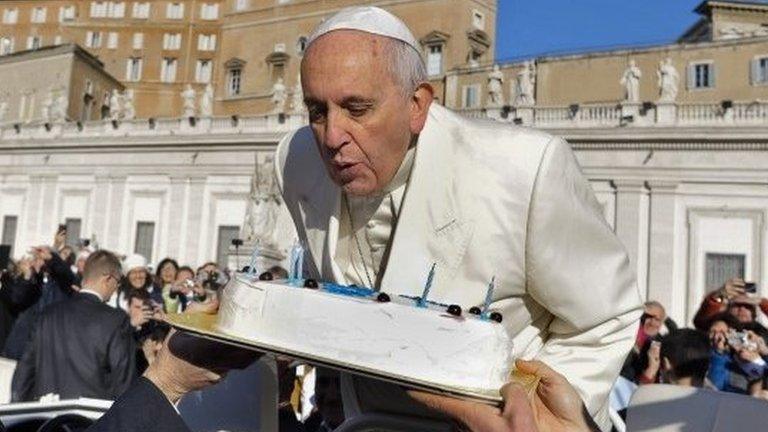
- Published5 March 2014
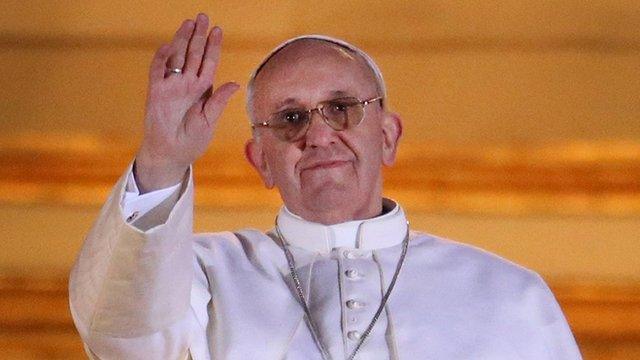
- Published7 January 2014
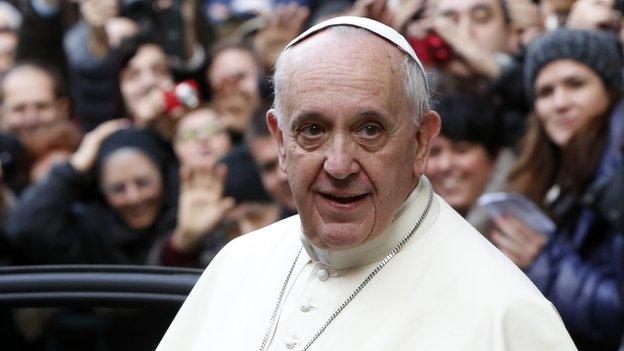
- Published29 July 2013
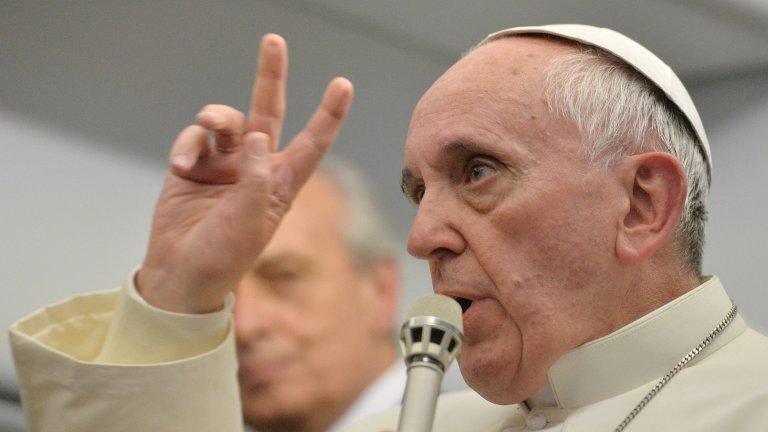
- Published28 October 2022
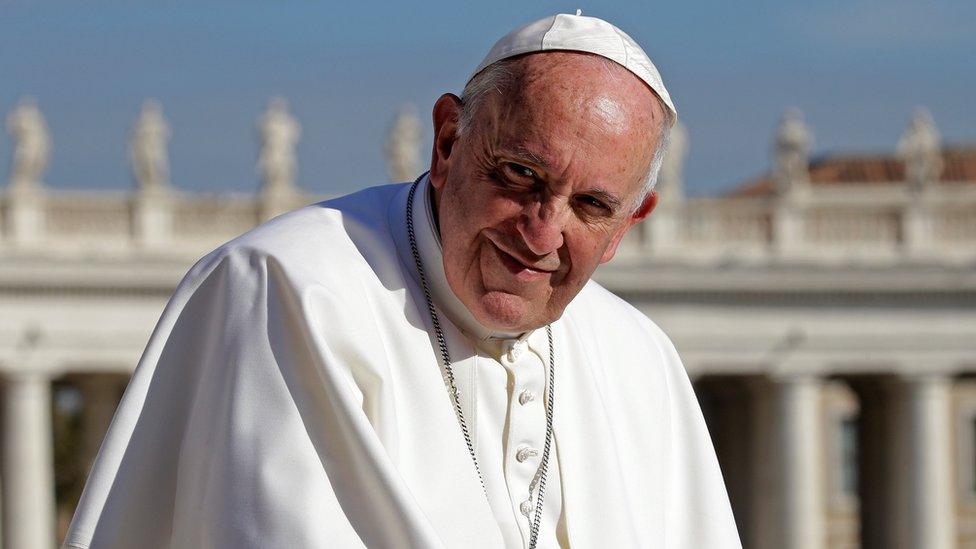
- Published2 May 2013
